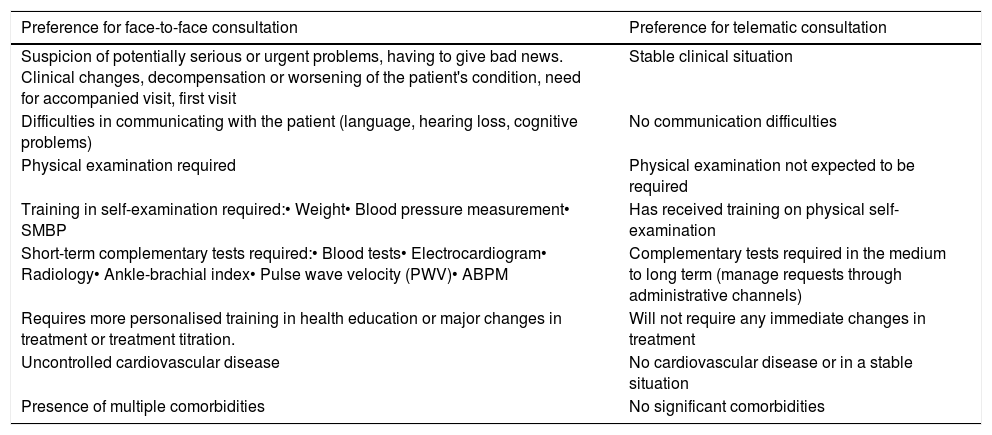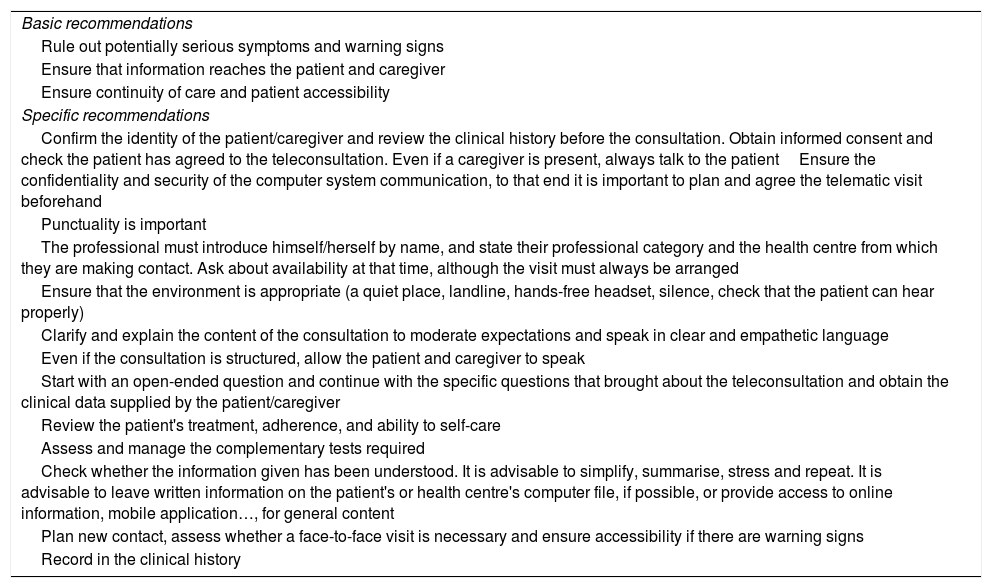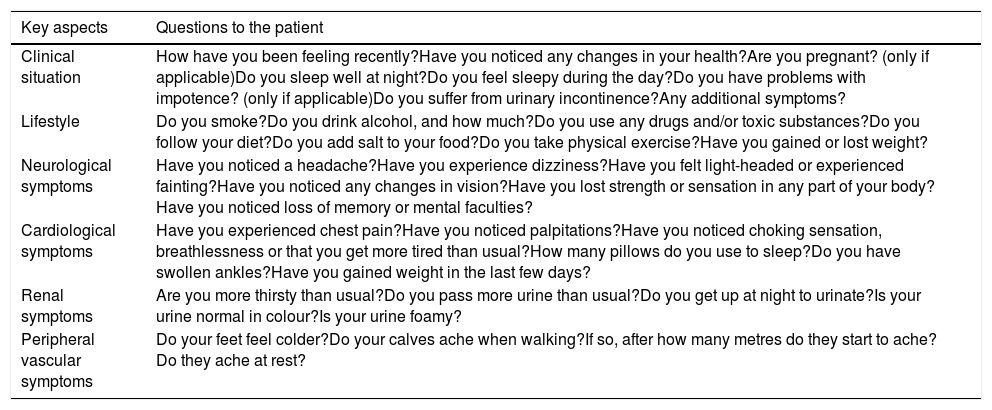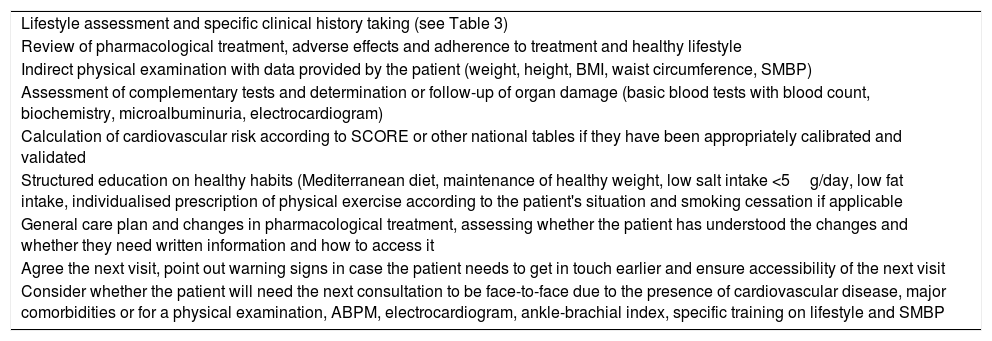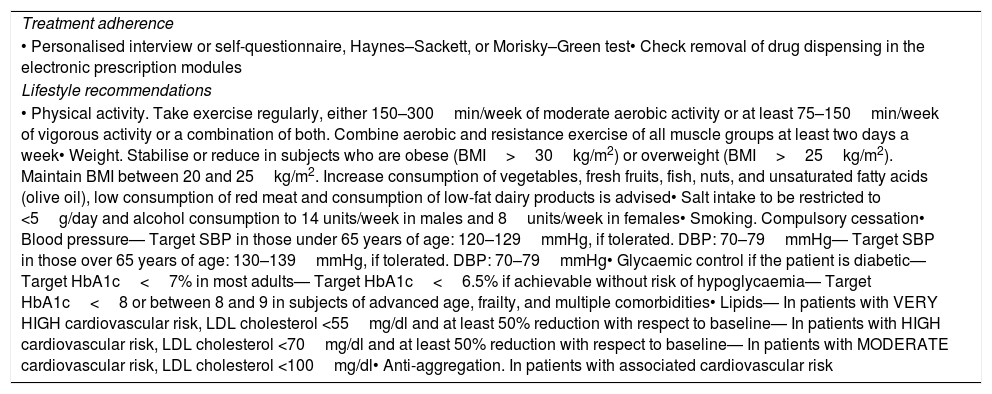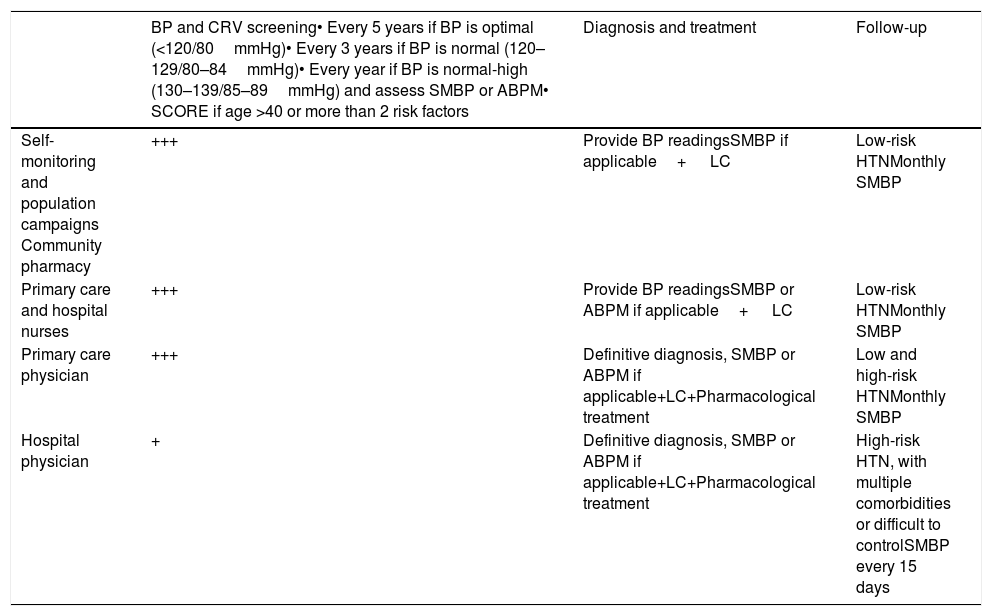The pandemic caused by coronavirus SARS-CoV-2 (COVID-19) has forced, in many cases, to replace face-to-face consultation with the telematic consultation, in order to reduce the risk of contagion associated with the presence of patients in health centres. This change may represent an opportunity for a different and more effective communication between professionals and patients, allowing better accessibility to medical care and more systematic and comprehensive approach to patients with hypertension and cardiovascular risk. However, organisational tools are needed to facilitate communication between patients and professionals, specifically with the exchange of clinical data by remote monitoring of variables associated with hypertension and cardiovascular risk (blood pressure, weight, height, blood tests…), and allow monitoring of adherence to treatments, lifestyles and risk factors. It would be desirable for this to be carried out by multidisciplinary teams, both from primary care, hospital and community pharmacy, with an adequate coordination of care. This document of the Spanish Society of Hypertension (SEH-LELHA) tries to give the keys to improve the quality of care of telematic consultations of patients with hypertension and cardiovascular risk, provide basic criteria of telematic or face to face attention and systematise their content. Likewise, the follow-up criteria are proposed by the different professionals.
La pandemia producida por el coronavirus SARS-CoV-2 (COVID-19) ha obligado, en muchos casos a sustituir la consulta presencial por la consulta telemática para reducir el riesgo de contagio asociado a la presencia de pacientes en los centros sanitarios. Este cambio puede representar una oportunidad para una comunicación diferente y más eficiente entre profesionales y pacientes, permitiendo mejorar la accesibilidad a la atención médica y un abordaje más sistemático e integral a los pacientes con hipertensión y riesgo cardiovascular. No obstante, se necesitan herramientas organizativas que faciliten la comunicación entre pacientes y profesionales, específicamente con intercambio de datos clínicos que favorezcan la monitorización remota de las variables asociadas a la hipertensión y riesgo cardiovascular (presión arterial, peso, talla, variables analíticas…) y permitan realizar un seguimiento adecuado en aspectos como la adherencia a los tratamientos, estilos de vida y factores de riesgo. Todo ello sería deseable que fuera realizado por equipos multidisciplinares, tanto de atención primaria como hospitalaria y farmacia comunitaria, con una coordinación adecuada del cuidado en este tipo de pacientes. Este documento de la Sociedad Española de Hipertensión-Liga Española para la Lucha contra la Hipertensión Arterial (SEH-LELHA) trata de dar las claves para mejorar la calidad asistencial de las consultas telemáticas de los pacientes con hipertensión y riesgo cardiovascular, proporcionar criterios básicos de atención telemática o presencial y sistematizar el contenido de estas. Así mismo se plantean los criterios de seguimiento por los diferentes profesionales.







